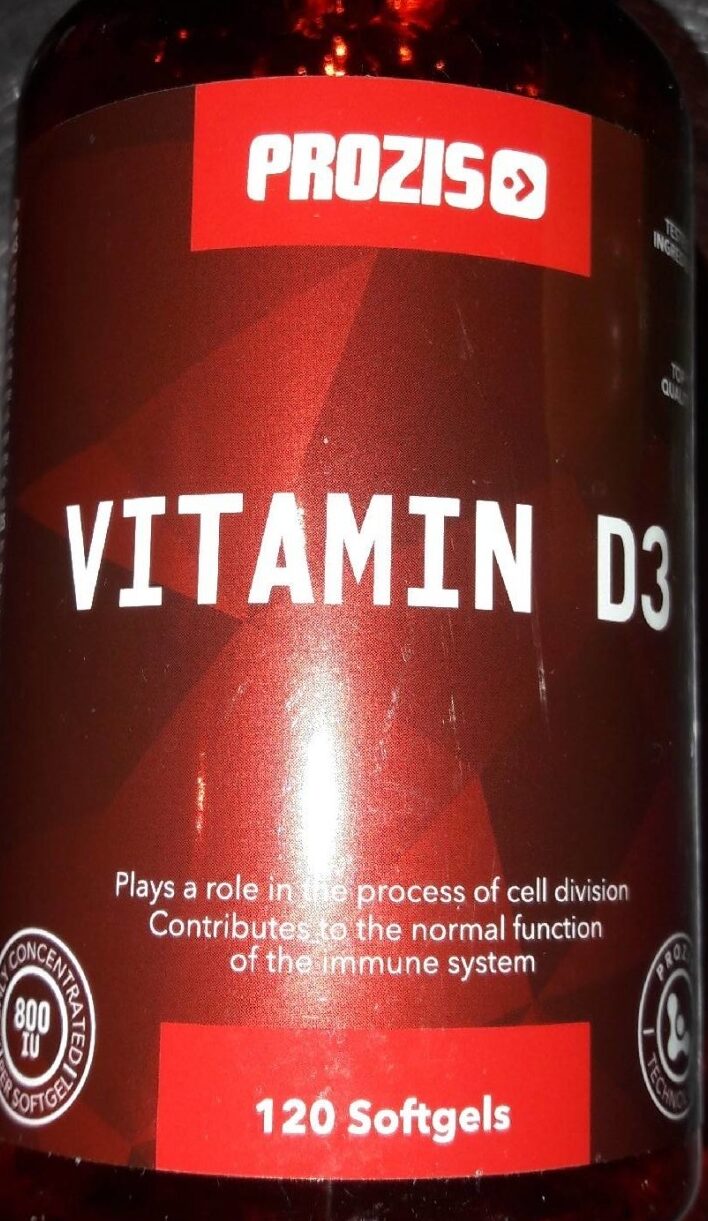Vitamine D3 800 IU - Prozis - 120 softgels
This product page is not complete. You can help to complete it by editing it and adding more data from the photos we have, or by taking more photos using the app for Android or iPhone/iPad. Thank you!
×
Barcode: 5600380890243 (EAN / EAN-13)
Quantity: 120 softgels
Packaging: Plastic
Brands: Prozis
Categories: Dietary supplements
Countries where sold: France
Matching with your preferences
Environment
Packaging
Transportation
Report a problem
Data sources
Product added on by kiliweb
Last edit of product page on by packbot.
Product page also edited by mbe, openfoodfacts-contributors, teolemon, yuka.ZHZBK0VKWmNyUElYZ3NJWndqU0p4OUZWd3BpVVpFM25MZkVKSVE9PQ.
If the data is incomplete or incorrect, you can complete or correct it by editing this page.







